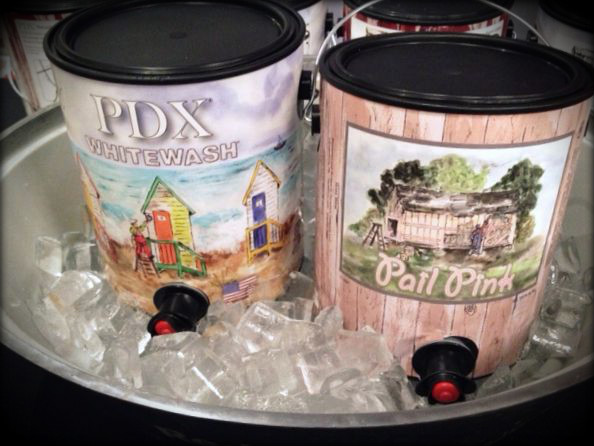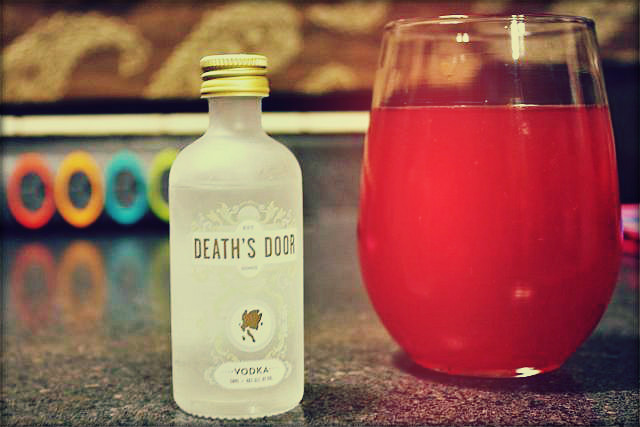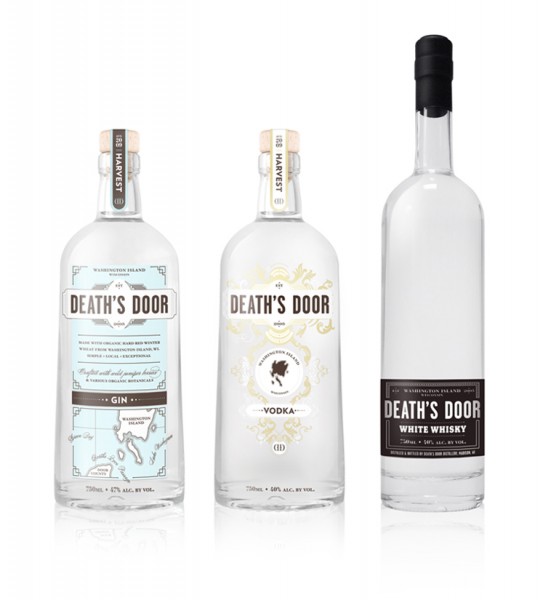Wine is sunlight, held together by water.
-Galileo
After guest posting on Type-A Parent about having a green, sustainable Christmas, I got a bunch of questions about eco beers, wines and spirits. I guess it’s an arena that some people hadn’t really considered greening before.
Like anything on the green-eco-sustainable front, it’s a sliding scale of factors, and you will need to ultimately decide which ones matter most to you. Some liquor might fit all your needs, which is awesome, but I’m thinking there’s a small selection of “perfect.”
I haven’t done a ton of research, I’m letting you know that upfront. This is just a down-and-dirty mind dump. More thorough resources are at the end.
1. Is it organic?
Imported grapes made it onto EWG’s 2011 Dirty Dozen list of fruits & veg you should buy organic, and a whole lotta grapes go into making wine. Like apple juice, we’re talking about a concentrated liquid, and that means concentrated toxins.
Beer is made from barley and hops (and wheat if we’re talking wheat beer). There is a lot of pesticide and fungicide used (particularly with the hops), although I don’t believe it’s absorbed to the same extent a grape absorbs. Currently, a beer can be labeled organic if the barley/wheat was grown without chemicals but not the hops; this is being phased out and by 2013 an “organic beer” will be all organic ingredients.
As always, my reminder here is that the real reason to buy organic is to limit not only our own chemical exposure but the impact those chemicals have on our soil, on our water supply, and on the farmers that have to handle it. Buying organic is more expensive, yes, but demand is how we collectively drive down price.
2. Is it local?
Liquids are expensive to shuttle around. They weigh a lot and have a large carbon footprint. Go domestic over imported, local over shipped from the other side of the country.
Bonus points for small family-owned biz.
3. How’s it packaged?
There’s an up-and-coming trend of putting craft beers in cans that I don’t love; the idea is that it makes them more portable but should you be taking your alkie-hol hiking or on the road with you anyway? However, the lighter aluminum makes a difference in shipping weights and carbon footprint; we’re talking up to 30% less emissions.
Apparently, aluminum also tends to get recycled more than glass, and glass requires more energy at first formation. BUT, glass is infinitely recyclable.
(It’s a given that you’re recycling, right?)
I can’t even start to wrap my head around how best to meaningfully crunch those numbers, but it looks like cans come out on top.
Until you remember that the cans have an inner lining to keep beers from developing a metallic taste, and to me it seems like linings always turn out to have BPA involved.
I’ll leave you to make your own decision, but if you’ve got local beer on tap at the corner pub? YOU WIN.
4. Is the company sustainable?
Are they recycling their byproducts? Do they use alternative, clean energy? How do they treat their workers?
Do they make donations to charities you support? I have to give a shoutout to ONEHOPE wine, here. They donate half their profits to charity and YOU get to choose who gets the portion of YOUR purchase.
I know these are pain-in-the-ass questions, but if you’re like me you’re already loyal to a few labels. Check them out. Remember that these issues matter to companies if they matter to YOU, because you vote with your dollar. And believe me, companies want your dollar.
That doesn’t just go for liquor, folks.
So what does Robin drink?
Paradocx Wine
I don’t drink a helluva lot of wine, but when I do it’s from a family-owned & operated local vineyard right here in Landenberg (I drive past it on the way to Jake’s school). It’s not organic, but is on a small-enough scale that I hope they don’t find broadly spraying necessary. They use drip irrigation rather than soaking for water conservation. And their wine is packaged in paint cans; when you finish your can you can turn it back in to be reused.
They also run a CSA— if you’re local and into wine you should look into it. I like the white and the blush, but that’s not saying much; I don’t like any red wine that I can think of.
Blue Moon Beer
I heart my Blue Moon. It’s not local but it’s my favorite. It’s brewed and packaged in Denver, and frankly I trust people in Colorado. I’ve been there and they take their eco-sensibilities seriously.
It’s tough to tease out any info about Blue Moon as an individual operation, as it’s owned by MillerCoors:
Striving to make more beer while using less water, reusing or recycling nearly 100 percent of brewery waste, it relies on each of its U.S. breweries to seek out the most efficient and environmentally sustainable brewing practices.
It also tastes really good.

Beer Runner-Up— Sierra Nevada Pale Ale
Not local. I should really get out and try some more local beers (mostly I just never buy beer when I’m eating out because it’s so expensive that way).
Sierra Nevada is powered by solar and hydrogen fuel cells; if you go to their website you can see how much energy is being produced by either right now. It’s kinda neato.
Death’s Door Spirits
I was introduced to this brand when visiting the Green House in Boulder. The vodka is straight up yum, described as “smooth and rich with subtle notes of vanilla.”
Since 2005, Death’s Door Spirits and Capital Brewery have supported the farmers’ efforts on Washington Island to expand the acreage of hard red winter wheat from five (5) to 1,200 while two years ago organic certification was achieved for all of the crops.
The wheat and barley are organic, the juniper berries are wild, and the ingredients are locally sourced to support local & small biz and to reduce overall carbon footprint. AND their stuff is tasty AND their bottles are kickass. Also? DEATH’S DOOR. Love the name.
To ring in the new year, I have to share my favorite drink of the moment (pictured at top).
Death’s Door Pomegranate Lemonade
- pomegranate juice (I buy Wild Harvest, which is Acme’s house brand for organic)
- equal amount lemonade (I use Newman’s Own Pink Lemonade; organic and the pink comes from grape juice)
- a healthy dose of Death’s Door vodka
Antioxidants in the pomegranate! Profits from Newman’s Own going to charity! Supporting small farms! All organic, baby! This drink is full of WIN.
You can’t even taste the alcohol; if anything this vodka adds a touch of sweetness to balance the tartness of the pomegranate and lemonade. Which can be a good thing or a VERY VERY bad thing.
Don’t drink and drive, people. This one creeps up on you.
Ever think about the pesticides in your alkie-hol?
Will you look for the organic label now? Support local? Look for sustainability?
________________________________________
Further Reading:
Which Kind of Booze Is Best for the Planet?
Organic Beer and Beyond: 10 Eco-Friendly Breweries
Green Booze: List of Eco Alcohol



